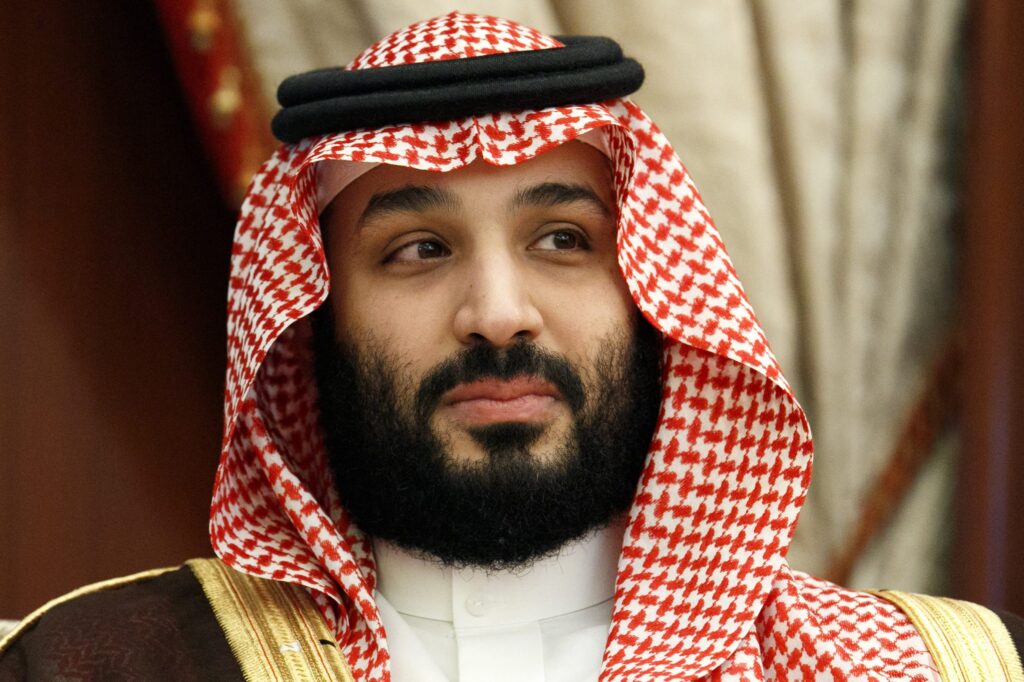
STRATEGIC ASSESSMENT. Saudi Crown Prince Mohamed Bin Salman (MBS) went on an offensive against other power brokers in Saudi Arabia, ordering the Saudi Royal Court to detain King Salman’s brother Prince Ahmed bin Abdulaziz al Saud and Prince Mohammed bin Nayef Abdulaziz al Saud (MBN), the King’s nephew. The roundup is reminiscent of the arrest, abuse, and shakedown of wealthy businessmen and senior royals at the Ritz Carlton Riyadh in 2017, which was temporarily transformed into a prison where hundreds of influential Saudis were intimidated, with some allegedly tortured.
That incident was operationalized under the guise of a sweeping anti-corruption crackdown. Last weekend’s events amount to more than mere palace intrigue. Some have speculated that the arrests are intended to serve as a distraction to downturns in the Saudi economy, although MBS’ recent actions have produced the opposite effect, with investors watching the Kingdom closely. MBS has already consolidated control over the military, national guard, and powerful internal security forces. He is now intent on removing or marginalizing anyone he believes can potentially stand against him to succeed King Salman.
MBS is attempting to portray his most recent power grab as a reaction to a coup attempt being planned, as several senior royals were charged with treason. Saudi King Salman is 84 years old and rumors have swirled recently that the king is in failing health. Although succession has typically passed from brother to brother, until King Salman tapped MBS for that role in 2017, in a break with tradition.
At one point, both Prince Ahmed and MBN were considered potential successors to the Saudi throne, although MBS has spent much of the past three years marginalizing all possible competitors. The arrest of Prince Ahmed is unprecedented, as it is the first instance where a son of Saudi Arabia’s first ruler, King Abdulaziz, has been arrested. MBN remains a favorite of many in the U.S. government, resulting from his close ties to high-ranking officials in the intelligence community and knowledge of counter-terrorism related issues.
MBS was feted in the West as a genuine reformer and visionary ready to bring much-needed change to Saudi Arabia’s sclerotic and oppressive regime. But in retrospect, the faith of many, from Jared Kushner to Thomas Friedman, was clearly misplaced. The promised reforms were merely window dressing for a far more sinister agenda of consolidating control in the Kingdom.
The brutal murder of Jamal Khashoggi and the jailing of prominent women’s rights activists have revealed the true nature of MBS—an inexperienced leader penchant for brutality and no toleran for even a modicum of dissent. Saudi Arabia’s disastrous war in Yemen has also damaged the Kingdom’s standing globally, including in the United States Congress where there is bipartisan opposition against the continued intervention in Yemen.
While MBS believes he can act with impunity, it appears that he has few trusted aides able to constrain his impulsive behavior. Given the uncertainty surrounding the November elections in the United States, MBS may be seeking to fast forward his claim to the throne. Saudi Arabia is also scheduled to host the G-20 in late November, and MBS could be moving on his political rivals now to ensure that he is ensconced as the ruler of Saudi Arabia before such a high-level event on a global scale.
High-ranking royals, military officers, and dozens of members of the Interior Ministry were also detained, although Interior Minister Abdulaziz bin Saud bin Nayef and his father, Prince Saud bin Nayef, were recently released. While MBS is seeking to display his power through arrests and intimidation, the turmoil inside the Kingdom is more likely to signal weakness and give the impression of growing political instability.
For the first time in many years, the Kaaba in Mecca was closed apparently over fears of the spread of the Covid-19, although rock concerts and other events still took place throughout the Kingdom. Movement in and out of the Qatif, Saudi Arabia’s oil-producing eastern region, was also temporarily locked down. Sagging oil prices have also added to economic anxiety in Saudi Arabia and elsewhere throughout the region. Saudi Arabia and Russia are now feuding over large production cuts, and shares of Saudi Aramco fell by nearly ten percent on Sunday. There are serious doubts about whether MBS has the capability to lead Saudi Arabia and his erratic and paranoid actions both within and outside of Saudi Arabia have not engendered much confidence (TSC).





